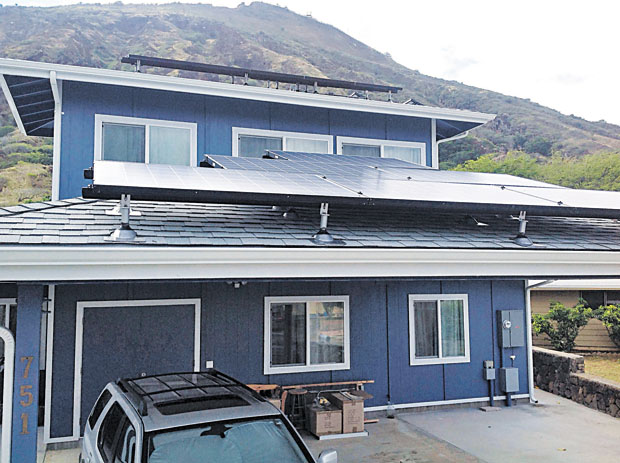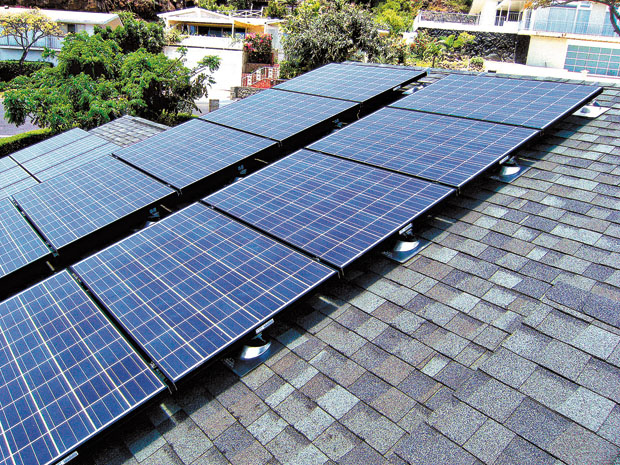Are you getting higher electric bills even though you have installed solar for your home? Does your solar system seem to be underperforming, making you concerned that something isn’t right? Perhaps it is experiencing problems caused by poor installation or lack of maintenance. Pacific Islands Solar, a division of Pacific Islands Construction, has found — through inspections of PV systems — deficiencies that explain a lot of these issues. Therefore, having your system inspected is the first step toward resolving these problems.
The following information is provided to inform you of what the company has found so that you may understand why a solar system should be inspected on a yearly basis.
Surface debris will lower energy produced by the modules and may cause the structural elements of the module to deteriorate. Dust, salt, bird droppings, chemicals, etc. that find their way to your modules and sit on the surface, will block the amount of sunlight reaching the modules’ cells, thus reducing your energy production.

Loose or dangling wires can lead to damaged wire insulation, causing faults or corrosion. Wire that was pinched during installation can cause a hot spot or resistance. Taut wire connections can cause connections to partially be open, creating a condition for arcing to occur. Thermal cycling can cause wire connections to loosen, but damage to your system can be avoided with early detection and correction.
Roof penetrations securing the PV system need to be inspected and maintained so that water does not enter the home through the roof, damaging the ceiling and the contents underneath.
Many systems are installed with poor, flashing details around the roof penetration that secure the PV system to the actual roof. As a result, over time, the materials used to waterproof these penetrations weaken and openings in the waterproofing develop, allowing leaks to occur.
The racking system components need to be inspected to ensure that everything is secure. Inspect for loose bolts and bent frames from thermal expansion/contraction that loosens things necessary to hold the modules in place during high winds. During an inspection, look for cracked glass, missing parts, signs of ground faults and any mechanical failures in the racking or modules.
Inverters work better when cleaned of dirt and dust that tend to make them operate at higher temperatures. When operating at cooler temperatures, inverters will last longer.
Modules also need to be inspected for yellow or brown burn marks.
Debris underneath the modules can retain moisture allowing for corrosion or faults to occur. For instance, animals will build nests beneath the modules, with some creatures having an appetite for wire insulation. Debris also will restrict air flow, causing the modules to become hotter, which is not ideal, since higher cell temperatures lower PV voltage and create less energy output.

Finally, knowing that your system is being maintained and that potential problems are being prevented will provide you peace of mind. An optimally performing PV system with a healthy checkup will provide greater savings and lasts longer.
If you feel that your system is underperforming and you are experiencing higher utility bills, call Pacific Islands Solar at 841-7756 or 372-3255 to perform a thorough inspection of your system at a very reasonable price. Pacific Islands solar also installs new Kyocera solar energy systems — the best-made, independently verified solar module in the industry. With installation comes a five-year cleaning and maintenance program.
To find out more, call Pacific Islands Solar about maintenance of your PV systems or the installation a new system.
PACIFIC ISLANDS SOLAR
contact // 841-7756 • 373-3255
web // pacificislandconstruction.net
See more articles from: Pacific Islands Solar